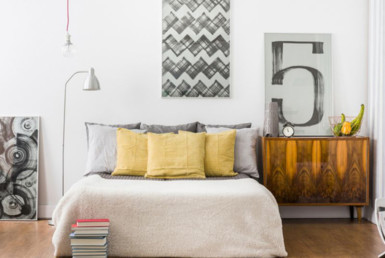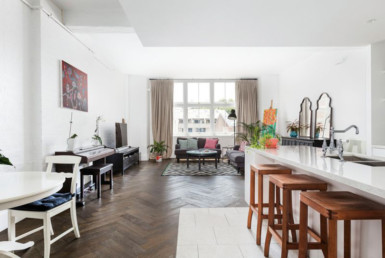11 Top Buying Tips

- GET YOUR FINANCE PRE-APPROVED
When looking to purchase your home it is recommended to have your finance options finalised and available. Mortgage brokers will advise on your borrowing power; how much you can spend on a property as well as the required deposit. They’ll assist in finding the best deal to suit you and get a pre-approval ready to help you negotiate.
Having a pre-approval will assist in the negotiation process, giving agents and sellers the confidence for a quick and hassle-free sale.
- KNOW WHAT YOU WANT IN A PROPERTY
Have a clear set of “must haves” for your new property. This could include the number of bedrooms, bathrooms or garage spaces. Do you need a big back yard for the kids to play in or maybe an alfresco area for outside entertaining? When you know what you’re looking for you’ll reduce the scope of your search and reduce the amount of properties to inspect. Don’t waste time inspecting properties that don’t suit your needs.
- CHOOSE THE SUBURBS THAT SUIT YOU MOST
When you have a suburb in mind, always be sure to look at neighbouring suburbs too. You may find your dream property is just around the corner
Always ensure the suburb of choice has the facilities you need for the long term. For example, if you have kids, are there good schools nearby? How long will it take to commute to work? Are shops and other amenities conveniently located close by, public transport if required etc?
- INSPECT THE PROPERTY WITH YOUR EYES WIDE OPEN
Savvy sellers will stage their home to make them as appealing as possible. But remember to always look beyond the superficial, instead focus on the practical requirements that may not be so obvious. Before you go to an inspection make a checklist of things to look for. It could be as simple as adequate power points, lighting, or is there gas and/or electricity available at the property?
- CHECK OUT YOUR POTENTIAL NEIGHBOURS
Once you’ve found the property you want, it’s a good idea to do a quick scope of the neighbouring houses. Yards that appear unkept or houses in a state of disrepair may suggest that the area mightn’t suit you. Where possible It is also a good idea to casually assess the feel or mood of the area. Sit outside the frontage a while and see the interactions or actions of your neighbours, the traffic and general happenings on the street.
Remember purchasing a home is one of the biggest decisions in your life. The last thing you want is to be stuck with disruptive neighbours to make you unhappy in your own home.
- DO BUILDING AND PEST INSPECTIONS
When purchasing a home, it is imperative to have a pest and building inspection completed that may identify any potential issues or structural concerns. It’s generally accepted that most houses will have small maintenance requirements that will need to be addressed from time to time. These are the ones that you can do yourself. However, significant structural issues including pest damage unable to be identified by the average person or simply in areas that cannot be seen at the time of inspection can have dire repercussions and be very costly to fix. Your dream home can turn into a nightmare very quickly without due diligence.
- MONITOR OTHER PROPERTIES THAT ARE FOR SALE IN THE SAME AREA
Do your homework by keeping an eye on the market in your chosen area. Look at property prices, the marketing employed, how long has the property stayed on the market before it sold, was it placed back on the market after being under contract?
Statistical data for house prices for various suburbs is readily available from sources including realestate.com.au. Many brokers and bank lenders will also offer to compile a property report for you when seeking finance options. This information will provide valuable insight into the market and future growth and give you an indication of price you should be paying for the property.
- THINK WITH YOUR HEAD NOT YOUR HEART
A pragmatic approach is always recommended when looking for your next home.
While it’s impossible to remove all emotion from choosing a house (It’s easy to fall in love with a house and imagine yourself living there) don’t let this cloud your judgement or compromise your pre-established set of “must haves” or budgetary considerations. You don’t want to be paying too much for a property, nor do you want to miss out on things you really need. It’s also important look at the condition of the house. While it may have all the charm in the world, consider the additional time and renovation costs it may take to bring it back to the condition you envisage.
- BE PATIENT AND KEEP AN OPEN MIND
The home of your dreams rarely comes from the first open you go to. Even if you do fall in love with the home, still attend other inspections so you can compare it to others on the market and what’s available in your price bracket. Keep an open mind that you may have to look in the surrounding suburbs to secure all the features you want at the price you can afford or want to pay.
- TAKE OUT THE EMOTION WHEN NEGOTIATING
Make sure you have researched everything about the property before submitting an offer.
Have a figure established of what you want to pay in line with your pre-approval and stick to it. It’s easy to get caught up in all the excitement of buying a home and offer more than you originally wanted or planned to. In the event you decide to offer more than originally planned, make sure to contact with your broker so they can advise of any change in borrowing power.
- READ ALL THE PAPERWORK YOU HAVE BEEN GIVEN
When you are signing a contract Form 1 make sure you read and understand all the information. If there is something you don’t understand contact your agent or broker or ask family and friends who have bought property.




Join The Discussion